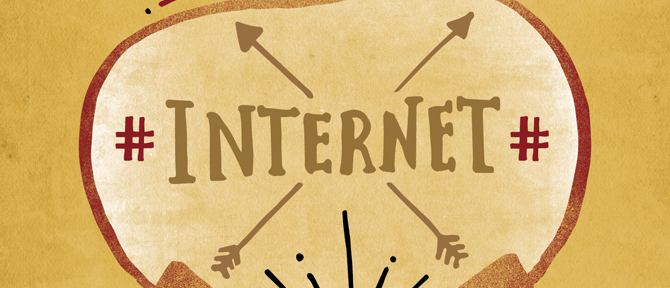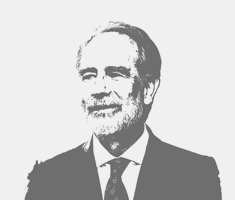The Spanish External Service supports digital diplomacy

Nowadays, the transparency and proximity to citizens that is expected from governments and which is a result of the growing roots of our societies’ democratic principles, highlights the importance of the communication function. The technological revolution of this field with the appearance of the Internet and the new digital tools, namely social networks, is determining the unavoidable renovation of the Administration’s operational behaviour through seeking a greater efficiency in the provision of the public service and an enhancement of its reputation. A similar phenomenon is also happening in the field of diplomacy.
Internet and ICTs have turned individuals into actors in the area of international relations to the extent that their opinion count and can be directly sent to political leaders, opinion leaders, ministries of foreign affairs, embassies and consulates. The traditional unidirectional information of governments is giving way to communication, understood as a bidirectional function which includes different aspects such as: ability to listen, willingness to dialogue and promotion of mutual knowledge. The diplomacy that includes this new relation with citizens through the new digital tools is what we know as online diplomacy or digital diplomacy.
The MAEC clearly supports modernization and the introduction of new technologies in diplomatic functions
What are the Ministry of Foreign Affairs and Cooperation (MAEC) and professionals of diplomacy in Spain doing to move from what we might call a traditional diplomacy to a new diplomacy?
The MAEC has shown its clear commitment to modernization and the incorporation of new technologies into the exercise of diplomatic functions. In recent years, a renovation of the Ministry and our external representations’ websites has been made and some accounts in social networks have been opened both at headquarters and in many embassies and consulates, which allows the establishment of a direct contact with civil society in countries where we have a diplomatic representation as well as in Spanish companies and members of the Spanish colony. Many diplomats have blogs in which they explain in an entertaining way many issues related to their work and their personal experiences in their respective countries.
Also, a great effort is being made by the Ministry to introduce digital culture in our External Service. It is a gradual process which started two years ago with the launch of a plan called “Plan de Comunicación de las Representaciones de España en el Exterior” (Communication Plan of Spain’s Representations Abroad), in which all our diplomatic missions, permanent representations and consular offices are involved. Its objectives include the following: modernize communication function, define good practices and share them online, provide training courses to the members of the External Service about online diplomacy and think very carefully about the best way to adopt the new model of digital diplomacy, adapted to the particular circumstances of our country and our administration (the necessities, means, resources, procedures and values of the Spanish society).
It would be helpful that the foreign policy strategy recognizes the growing importance of communication and digital diplomacy as instruments for our country’s international projection
As a result of this reflection, a series of challenges have arisen which the Administration and particularly the MAEC will have to face in a gradual but determined way, in the course of the coming months and years with the aim of maintaining and increasing the presence and influence of our country in the international arena. The most outstanding aspects are the following:
 • The need to identify new coordination mechanisms, working procedures and action protocols adapted to the incorporation of new digital tools to the diplomatic work.
• The need to identify new coordination mechanisms, working procedures and action protocols adapted to the incorporation of new digital tools to the diplomatic work.
• Provide with sufficient resources the units in charge of the management of digital tools
• Without prejudice to the necessity of making the best use of the available resources in tough economic times like the one we are witnessing now, due to the existence of the new diplomacy in the digital era, it is unavoidable to devote more funds from the budget to the continuous training of the members of the external service, including new digital competences and a technological renovation which favours a full implementation in the MAEC and in our external representations of new digital tools, ensuring communications’ security.
• Taking into account that social networks are mainly an engine for innovation and change, there is a need of introducing an efficient system for knowledge and talent management in the External Service.
• Identifying mechanisms of collaboration with communication consultant agencies (think tanks, universities and other actors of the public diplomacy) and maintaining contacts with the most relevant international actors in the field of digital diplomacy with the purpose of identifying new practices which can be adapted to our External Service.
• Finally, it would be helpful for the achievement of the above objectives that the foreign policy strategy that the Government must pass within the framework of the External Action and External Service Act, to explicitly recognise the growing importance of communication and digital diplomacy as instruments of our country’s international projection.
We Spanish diplomats are aware of all the changes that the exercise of diplomacy is experiencing. We also know that, even though the basic functions of a diplomat (representing, informing and protecting) are still the same, the way of implementing them has changed. We cannot miss all the resources and possibilities offered by new technologies and thus, it is indispensable to foster the necessary transformations in our Ministry and in our embassies and consulates. Finally, we must seek proximity with citizens, guaranteeing a better performance of our tasks in the public service and taking advantage of all the ideas and talent found on the Internet.
